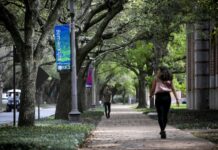As the college application process for seniors gets underway, four Jesuit students will be able to add that they are National Merit Semifinalists. The students, James Abbott ’14, Adrian Bertulfo ’14, Jordan Lee ’14, and Grant Uy ’14, worked hard to get to this point and will have big opportunities ahead of them.
To become a National Merit Scholar Semifinalist, the students must score above a certain cutoff score on the SAT, which varies by state. In the state of Texas, the cutoff this year was 219 out of 240, four points higher to Texas’ cutoff score last year. Texas also happens to have the 8th highest cutoff score, indicating that Texas has some of the smartest kids in the country.
According to senior college counselor Mr. David Oglesby, being a semifinalist has a huge impact on the admissions process. Oglesby went on to say that for semifinalists, there is a sort of “competition upon many colleges to get as many [semifinalists] as they can because it is kind of a way to brag.”
The University of Oklahoma, for example, flaunts the fact that they have the most semifinalists because they offer a $90,000 scholarship to all semifinalists. According to Mr. Oglesby, “even if the college doesn’t give money for semifinalists, it is understood that if you are a semifinalist and applying to an Ivy, it gives you an advantage.”
For Jesuit students, the average number of semifinalists each year is about seven. Because of the large increase in the cutoff, Jesuit, along with many other Texas schools, had fewer than the average amount of qualifiers.
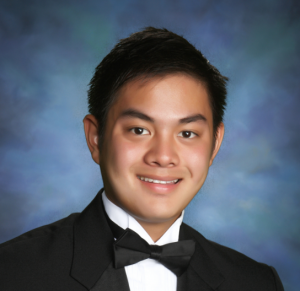
For Jordan Lee ’14, this recognition was earned as he took SAT prep at Karen Dillard’s, yielding consistent testing scores through his four years at Jesuit. Lee hopes that receiving this recognition will help “garner scholarships.” Lee has plans of attending an elite school such as Rice, Northwestern, Vanderbilt, or The University of Pennsylvania.
The National Merit Scholarship Corporation itself only offers a small scholarship of $2,500 to the finalists and the larger scholarships usually come from the school the semifinalist is attending.
Grant Uy ’14 impressively scored high enough his freshman year alone to apply to be a National Merit Semifinalist. Junior year, the year that the student is able to qualify, Uy scored a 237, just three points away from a perfect score. Although Uy has never taken a test prep class, he still registered the highest score in the class of 2014.
The recognition for Uy has already earned him a couple of scholarships from schools, but he is
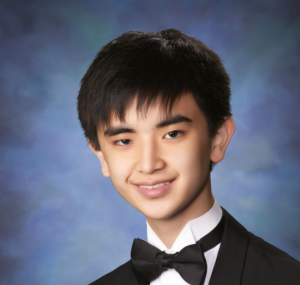
not seriously considering any of them and so he hopes to receive a scholarship from the National Merit program itself. Uy has applied to several elite schools such as Stanford, UT Austin, UC Berkeley, and Rice University but has not decided on one school, because admission letters have yet to be sent.
Similarly, James Abbott ’14 has found himself registering consistently successful test scores throughout high school and even dating all the way back to the ISEE entrance exam in eighth grade. Although Abbott has not ever taken a test prep class, he prepared himself out of a study book prior to the PSAT his sophomore year but did not prepare for the SAT.
For Abbott, this award will “benefit [his] résumé, but will ultimately not be a deciding factor in admissions, simply because the schools I am applying to are so rigorous.” Abbott’s top choices include impressive schools such as Princeton, Stanford, and Brown.
Adrian Bertulfo ’14, like Abbott, prepared himself by taking practice tests and studying out of a practice book. Bertulfo’s test scores have been off the charts since he has come to Jesuit, including impressive scores on a variety of AP tests. Contrary to the belief of Abbott, Bertulfo believes that this will be a nice résumé padge but it “doesn’t replace extracurricular or academic strengths, only supplements them.” Bertulfo has plans of attending USC, his top choice, or Arizona State or University of Pacific.
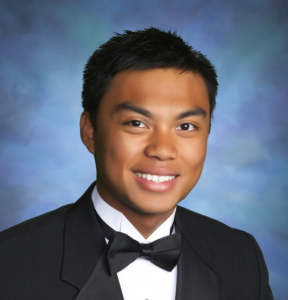
Now, the four Jesuit students will compete with many of the state’s smartest students to become finalists. Although being a semifinalist is based strictly on test scores, to become a finalist the student is judged by three things: the SAT score must be close to the PSAT score (there cannot be a difference of more than 25 points), the grades of the student must match the score, and the third is that the essay that the semifinalist submits.
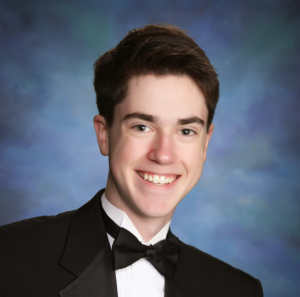
The grades of the student matching the score of the SAT has a large impact on whether or not they become a finalist. The National Merit Corporation does not want a student that is a good test taker but has a lower grade average than the scores reflect to get the finalist status over someone who works hard. The essay plays a large role in the status because it tests the students ability to think critically.
The finalists can receive scholarships by either the corporation itself, the school they are attending, or the biggest source, the scholarships that are tied into certain corporations. Mr. Oglesby explains the scholarships tied into the corporations as “if your parents work for Xerox or IBM or another company that is a sponsor, then the student is eligible for a corporate scholarship.” The corporate scholarships range anywhere between $1,000-$5,000.
The students will find out whether or not they are finalists in February and Mr. Oglesby believes that all four students have good chances at becoming finalists.





